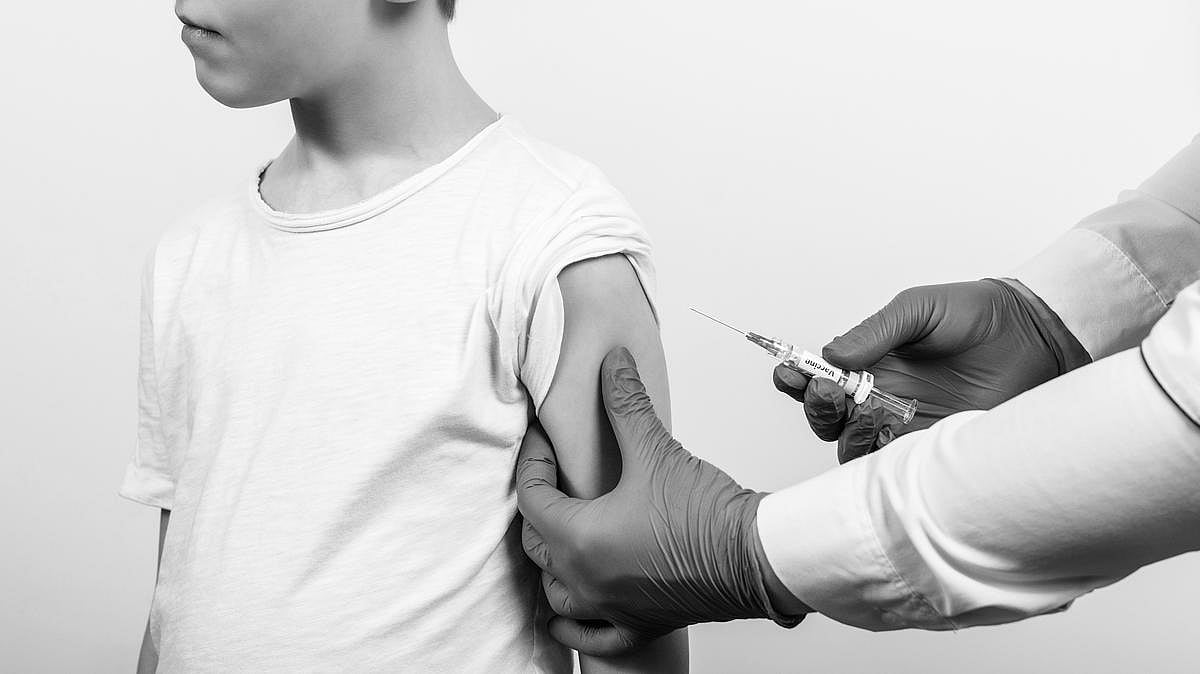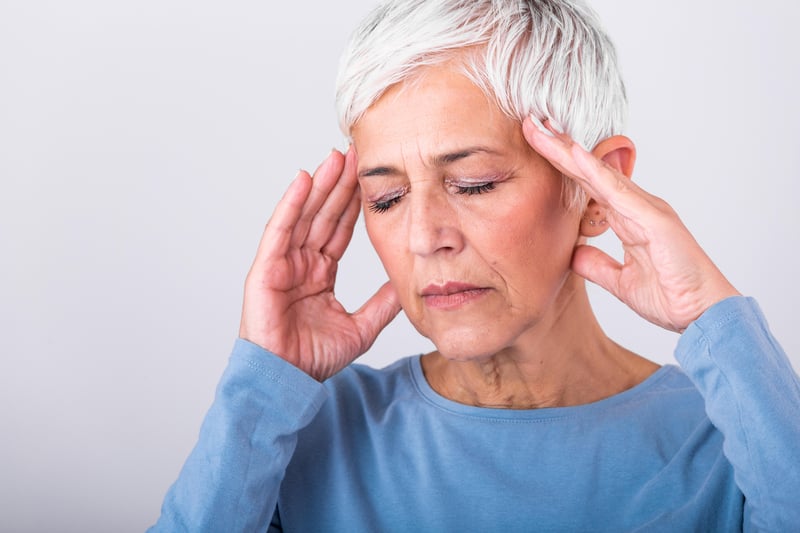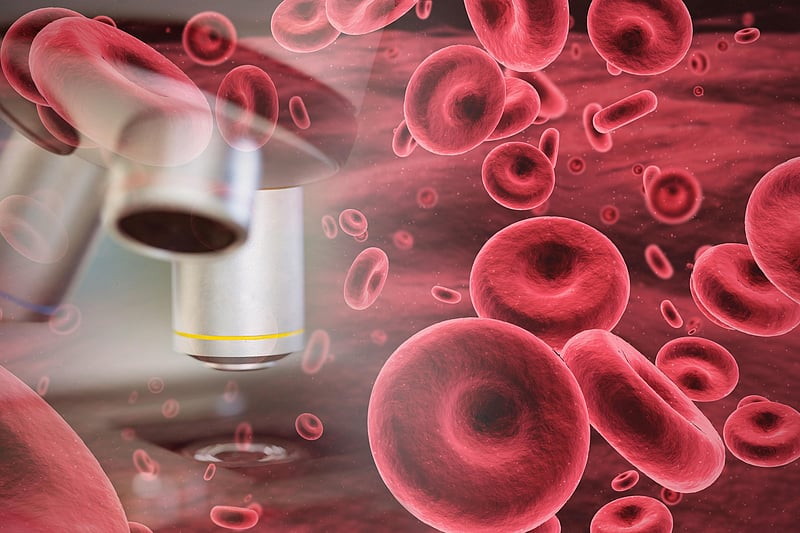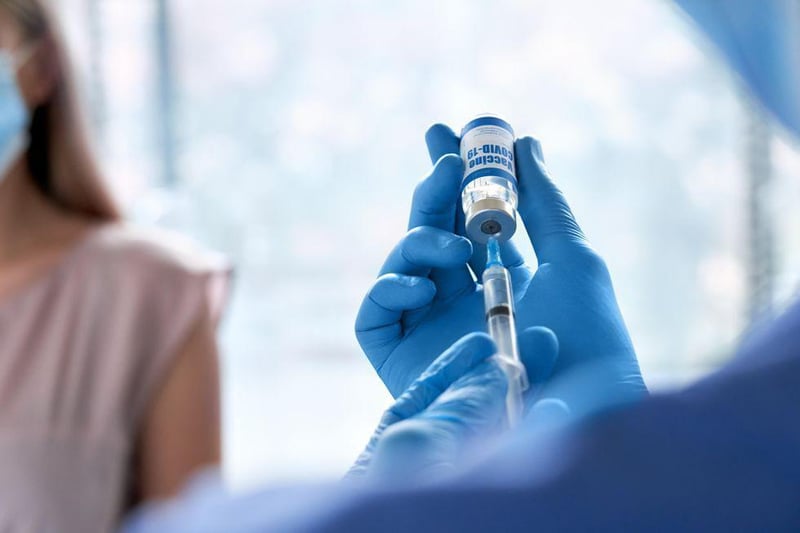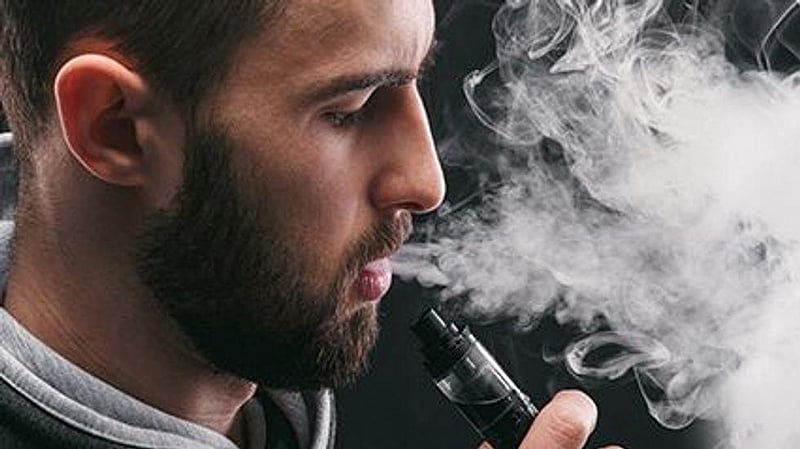Get Healthy!
Results for search "Clots".
Health News Results - 41
The COVID vaccine is safer for kids’ heart health than if they become infected with the coronavirus, a new study has found.
Children who get COVID have an increased risk of rare heart complications including blood clots, heart inflammation and low platelet counts that lasts up to a year after t...
- Dennis Thompson HealthDay Reporter
- |
- November 6, 2025
- |
- Full Page
What kills cancer patients is where their malignancy spreads in their body, rather than the cancer itself, a new study says.
If tumors spread into major blood vessels, they can spark blood clotting that contributes to organ failure, researchers recently reported in the journal Nature Medicine.
That’s why...
- Dennis Thompson HealthDay Reporter
- |
- October 22, 2025
- |
- Full Page
University of Colorado football coach Deion Sanders said Tuesday he was undergoing surgery to treat ongoing blood clot issues, and less than a day after the procedure, returned to practice Wednesd...
- I. Edwards HealthDay Reporter
- |
- October 9, 2025
- |
- Full Page
Children and teens have a doubled risk of long COVID following their second COVID-19 infection, researchers report.
What’s more, long COVID dramatically increases kids’ risk of myocarditis, blood clots, damaged kidneys, abnormal heart beats and other health problems, researchers report in...
- Dennis Thompson HealthDay Reporter
- |
- October 2, 2025
- |
- Full Page
The health of women who experience severe bleeding after giving birth can remain in peril for up to 15 years afterward, a major new evidence review says.
Women who survive postpartum hemorrhage are 76% more likely to suffer health problems like heart failure, stroke and heart disease for more than a decade afterward, researchers report in the
There’s a better option than daily aspirin to protect heart patients with a stent against dangerous blood clots, a new study found.
A class of drugs called P2Y12 inhibitors that includes ticagrelor and clopidogrel could be more effective than low-dose aspirin in preventin...
- HealthDay Reporter
- Dennis Thompson
- |
- June 6, 2025
- |
- Full Page
A newly approved clot- busting drug for stroke works as well as a decades-old medication still used by most U.S. hospitals, and can be delivered even more quickly, a new study says.
Tenecteplase (TN...
- HealthDay Reporter
- Dennis Thompson
- |
- March 20, 2025
- |
- Full Page
One of the NBA's most exciting rising stars will spend the rest of the 2024-2025 season on the bench.
Victor Wembanyama, the San Antonio Spurs' 7-foot 3-inch phenom, was sidelined after doctors discovered a dangerous blood clot in his right shoulder, the league announced Thursday.
...- HealthDay Reporter
- India Edwards
- |
- February 21, 2025
- |
- Full Page
Lab-grown blood vessels are providing new insight into how damage to the tiny vessels in the brain can cause them to leak, contributing to dementia and stroke.
Even better, this research has identified a drug target that could plug these leaks and potentially reduce a person's risk of brain-damaging blood vessel leaks.
Antibiotic and anti-cancer drugs that inhibit a class of biochem...
- HealthDay Reporter
- Dennis Thompson
- |
- November 20, 2023
- |
- Full Page
It's well known that certain forms of birth control carry a small risk of blood clots. Now a large new study suggests that some common painkillers can magnify that risk.
The study, of 2 million Danish women, found what numerous others have before: Women who used birth control pills or other estrogen-containing contraceptives had a heightened risk of developing a blood clot in the legs or ...
- HealthDay Reporter
- Amy Norton
- |
- September 8, 2023
- |
- Full Page
Here's one more reason to watch your weight: Obesity can increase your odds for serious complications after surgery.
Compared with patients of normal weight, those who are obese are at greater risk for developing blood clots, infections and kidney failure after surgery, a new study reports. Pa...
- HealthDay Reporter
- Steven Reinberg
- |
- May 8, 2023
- |
- Full Page
Long periods of immobility can put people at risk of dangerous blood clots -- yet hibernating bears lie around for months without any problem. Now scientists think they've figured out why.
The researchers hope the insight can eventually lead to new drugs for preventing life-threatening blood clots -- the kind that begin in the legs but can travel to the brain and cause a stroke, or to the...
- HealthDay Reporter
- Amy Norton
- |
- April 14, 2023
- |
- Full Page
An artificial sweetener commonly used in processed foods could be increasing people's risk of heart attack and stroke, a new study argues.
Erythritol is a natural sugar alcohol found in many vegetables and fruit. Even the human body produces small amounts of erythritol.
But higher levels of the sweetener added to processed foods might increase people's risk of blood clots, researche...
- HealthDay Reporter
- Dennis Thompson
- |
- February 27, 2023
- |
- Full Page
Researchers have uncovered a serious risk for folks who have an extra X or Y chromosome.
Those with the genetic condition known as supernumerary sex chromosome aneuploidy have a risk for blood clots in a deep vein or lung that's four or five times higher than usual, a new study
- HealthDay Reporter
- Cara Murez
- |
- January 27, 2023
- |
- Full Page
The American Heart Association has issued a new scientific statement on pulmonary embolism (PE), a sometimes fatal condition in which a blood clot travels to the lungs.
The American Heart Association (AHA) statement suggests surgery be considered for more people with high-r...
- HealthDay Reporter
- Cara Murez
- |
- January 25, 2023
- |
- Full Page
When people undergo surgery for broken arms or legs, they are often injected with prescription blood thinners to reduce their risk of developing potentially life-threatening blood clots in their lungs and legs.
But a large,
If someone is stricken with a blood cancer or life-threatening clot, they'll probably fare better if they are white and wealthy, three new studies show.
The ongoing impact of patient race and income to medical outcomes was in the spotlight Saturday in New Orleans at the annual meeting of the American Society of Hematology (ASH).
In one study, a team led by
An increased risk of blood clots persists for close to a year after a COVID-19 infection, a large study shows.
The health records of 48 million unvaccinated adults in the United Kingdom suggest that the pandemic's first wave in 2020 may have led to an additional 10,500 cases of heart attack, stroke and other
A daily hamburger might raise the risk of developing heart disease, but not necessarily for the reasons people often think, new research suggests.
The study of nearly 4,000 older Americans found what many have before: People who ate a lot of red meat had a heightened risk of heart disease and stroke.<...
- HealthDay Reporter
- Amy Norton
- |
- August 2, 2022
- |
- Full Page
The thickness of a person's blood can be a matter of life or death if they contract COVID-19, a new study suggests.
Patients hospitalized with COVID-19 who have higher blood viscosity are at greater risk of dying from COVID-related complications, the researchers found.
"This study demonstrates the importance of checking for blood viscosity in COVID-19 patients early in hospital admi...
- HealthDay Reporter
- Dennis Thompson
- |
- July 19, 2022
- |
- Full Page
While California works to restore its landscape after years of historic wildfires, new research could transform the way in which veterinarians treat animals recovered from damaged forests.
The study found that cats who inhaled smoke or suffered burns are at risk for forming deadly clots. Not only that, the scientists were able ...
- HealthDay Reporter
- Ellie Quinlan Houghtaling
- |
- July 18, 2022
- |
- Full Page
Doctors need to be aware that prostate cancer raises a man's risk of serious and potentially deadly blood clots by about 50%, researchers say.
All cancer patients are at increased risk for venous thromboembolism (VTE), a dangerous but treatable blood clot in the veins that is a leading cause of death in cancer patient...
- HealthDay Reporter
- Robert Preidt
- |
- May 25, 2022
- |
- Full Page
Citing the accumulated data on a raised risk for a type of dangerous blood clot, the U.S. Food and Drug Administration on Thursday greatly restricted the recommended use of the Johnson & Johnson COVID-19 vaccine.
With safer two-dose vaccines such as Pfizer and Moderna widely available, the one-dose J&J shot should be limited "to individuals 18 years of age and older for whom other authori...
- HealthDay Reporter
- Robin Foster and Ernie Mundell
- |
- May 5, 2022
- |
- Full Page
Women are less likely than men to head back to their jobs after recovering from a severe stroke, but researchers say the reasons for that difference are unclear.
"Returning to work after a severe stroke is a sign of successful
Cancer patients' blood type may play a role in their risk for dangerous blood clots, researchers say.
Cancer and its treatments increase the risk for venous thromboembolism (VTE). That includes de...
- HealthDay Reporter
- Robert Preidt
- |
- April 15, 2022
- |
- Full Page
COVID-19 increases people's risk of dangerous blood clots and bleeding for months after infection, researchers say.
The new findings suggest that COVID-19 is an independent risk factor for deep vein thrombosis, pulmonary embolism and bleeding.
"Our findings arguably support [treatment] to avoid thrombotic events, especially for high-risk patients, and strengthen the importance of va...
- HealthDay Reporter
- Robert Preidt
- |
- April 7, 2022
- |
- Full Page
"Rogue antibodies" that seem to trigger severe blood clotting and illness in COVID-19 patients have been identified by scientists.
Their analysis of blood samples from 244 patients hospitalized for COVID-19 revealed circulating antiphospholipid antibodies, which are autoantibodies that target a person's own organs and systems.
These autoantibodies are more common in people with auto...
- HealthDay Reporter
- |
- February 18, 2022
- |
- Full Page
A newer type of "clot-busting" medication might be safer than the one long used for treating strokes, a preliminary study hints.
Researchers found that among nearly 7,900 stroke sufferers, those treated with the drug -- called tenecteplase -- were less likely to suffer life-threatening brain bleeding as a side effect, compared to those given the standard medication alteplase.
Overal...
- HealthDay Reporter
- Amy Norton
- |
- February 3, 2022
- |
- Full Page
Stroke is a possible complication of COVID-19, and researchers say they now know when that risk is highest.
A new study from the U.S. Centers for Disease Control and Prevention found the risk of COVID-related ischemic stroke appears greatest in the first three days after you're diagn...
- HealthDay Reporter
- Cara Murez
- |
- February 3, 2022
- |
- Full Page
Young adult pot smokers who've suffered a stroke are more likely to have another stroke if they keep toking, a new study finds.
Research has already linked heavy cannabis use with an increased risk of
Who hasn't started to watch a new drama series on TV, and suddenly realize that hours have slipped by as they binged on one episode after the next?
Now, a new study suggests that too much binge-watching may raise the risk of life-threatening blood clots in the legs or lungs by 35%.
"Prolonged TV viewing, which involves immobilization, may increase the risk of venous thromboembolism,...
- HealthDay Reporter
- Steven Reinberg
- |
- January 20, 2022
- |
- Full Page
Following continued reports of a rare but life-threatening clotting condition linked to the Johnson & Johnson coronavirus vaccine, a federal advisory panel on Thursday recommended that the Pfizer/BioNTech and Moderna shots be the preferred choices for Americans.
- HealthDay Reporter
- Ernie Mundell and Robert Preidt and Robin Foster
- |
- December 16, 2021
- |
- Full Page
Following continued reports of a rare but life-threatening clotting condition linked to the Johnson & Johnson coronavirus vaccine, a federal advisory panel will meet Thursday to once again weigh the safety of the shot.
The Advisory Committee on Immunization Practices (ACIP), which makes vaccine recommenda...
- HealthDay Reporter
- Robert Preidt and Robin Foster
- |
- December 16, 2021
- |
- Full Page
For people suffering from clots in their legs, a new study finds that one of two commonly used blood thinners is safer and more effective than the other.
Venous thromboembolism (VTE) can cause clots to form in the deep veins in the legs, and if one breaks loose it can travel to the lungs and cause breathing problems and even death. In this study, researchers looked at the risks and benefi...
- HealthDay Reporter
- Steven Reinberg
- |
- December 8, 2021
- |
- Full Page
Folks who've had a clogged artery reopened probably can stop taking blood thinners sooner than previously thought, a new study argues.
Patients are regularly prescribed blood thinners for a year or more after angioplasty. This is to make sure that blood doesn't clot inside the metal stent that now holds their artery open. That could cause a heart attack or stroke.
But heart doctors ...
- HealthDay Reporter
- Dennis Thompson
- |
- November 23, 2021
- |
- Full Page
For decades, doctors have struggled with the fact that the benefit of any blood-thinning pill came with the added risk of excess bleeding.
Now, an experimental anti-clotting pill called milvexian has been found to be effective in patients who had knee replacement surgery -- without adding any excess risk for bleeding.
The study focused on these patients because they're known to be a...
- HealthDay Reporter
- Ernie Mundell and Robert Preidt
- |
- November 16, 2021
- |
- Full Page
Most people shouldn't bother taking daily low-dose aspirin to reduce their risk of a first heart attack or stroke, the nation's leading panel of preventive medicine experts announced Tuesday.
The U.S. Preventive Services Task Force (USPSTF) issued a draft recommendation that essentially backs off its previous advice urging many folks to consider taking low-dose aspirin to prevent heart di...
- HealthDay Reporter
- Dennis Thompson
- |
- October 12, 2021
- |
- Full Page
Clot-busting drugs may be safe for certain stroke patients with brain aneurysms that haven't ruptured, researchers say.
An aneurysm is a bulge in the wall of a blood vessel. In the new study, patients had suffered an ischemic stroke, which is caused by blocked blood flow in the brain.
Even though clot-busting drugs are the main treatment for ischemic stroke, they're often not given ...
- HealthDay Reporter
- Robert Preidt
- |
- October 12, 2021
- |
- Full Page
Physically removing a blood clot in the brain is a safe and effective treatment for pregnant women having a stroke, a new study suggests.
Stroke during pregnancy remains rare, but the risk increases during pregnancy and for up to 12 weeks after giving birth, or postpartum.
The most common type is ischemic stroke, where a clot blocks blood flow in the brain. Mechanical thrombectomy ...
- American Heart Association News
- |
- September 20, 2021
- |
- Full Page
Nicotine-laden e-cigarettes raise a user's risk of blood clots, damage small blood vessels and can also raise heart rate and blood pressure, a new study finds.
The effects are similar to those caused by traditional cigarettes, and raise the concern that long-term vaping could help cause heart attacks or strokes, the Swedish research team warned.
"Our results suggest that using e-cig...
- HealthDay Reporter
- |
- September 7, 2021
- |
- Full Page
COVID-19 infection significantly increases the risk of dangerous blood clots after surgery, a new study finds.
Venous thromboembolism (VTE) is a potential complication of surgery in which blood clots form in the veins. It is a leading preventable cause of death in hospital patients.
This study found that VTEs were 50% more likely after surgery in patients with a current COVID infect...
- HealthDay Reporter
- Robert Preidt
- |
- August 25, 2021
- |
- Full Page




